Empowering Sindhi Voices Against Environmental Exploitation
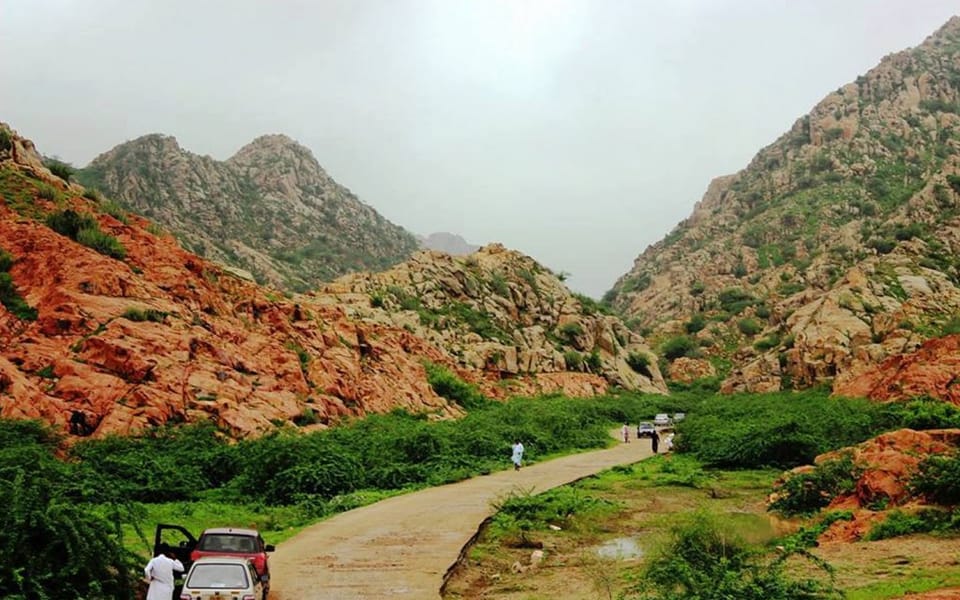
The Karoonjhar mountains, located in Tharparkar in Pakistan’s Sindh province recently became a source of contention between local Sindhi communities and the government, as locals claim that this landmark is simply the government’s next victim in their desire for unchecked development. The mountains, which are known for their granite deposits, are a source of livelihood and a historical treasure for many local communities, who oppose government attempts at mining them. Despite a court stay order on the matter, mining efforts have apparently continued. Much of local anger also comes from feeling like generations worth of Sindhi communities and their lifestyles and traditions have been challenged or ignored by those in power. “If the government had asked its own people before jumping into this destruction, they would’ve realized these mountains have so much life, they’re not just rocks. There’s the graves of their ancestors on these mountains, their animals come and graze here, it’s a way of livelihood and life,” says musician Saif Samejo who’s been hosting Lahooti Melo, a festival celebrating Sindhi culture and highlighting climate action since 2016.
While the government finally declared the Karoonjhar mountains a protected heritage site late last year, the issue runs far deeper than just this particular case of mining. It is about the generational silencing of the communities who give their whole lives to the land only to get nothing in return. At a time when climate change threatens much of Pakistan, it's becoming crucial to give a platform to these communities and put what they've been saying into action.
Samejo, who uses his own music platform as well as Lahooti to feature the voices of Sindhi community leaders, says he’s mindful of not talking over local causes. “I’ve noticed that whatever movement has remained indigenous, without any political connections - because political connections overshadow indigenous voices and movements - has stayed true to the cause. We can raise voices for them but overshadowing them means making it about us, so then the fight becomes about two people and the cause is lost,” Samejo says.
While the term indigenous can’t be used in the same way for local populations here, points out artist and climate advocate Zulfikar Ali Bhutto, it does differentiate the local populations who’ve been living in harmony with the land for generations only to be talked over by elite groups. “Pakistan is an apartheid state between the rich and the poor where even access to knowledge is segregated, and it’s not just about access to wealth but what kind of wealth,” Bhutto says while adding that there’s a disregard for the natural world particularly amongst more privileged groups. “We eat from the Indus but we know nothing about the Indus,” he adds. For generations, these local communities have been silenced in favour of capitalistic gains and profit and even now, when so much of the damage done is irreversible, there’s still too little being done to bring back power to those who know the land the most.

Prioritising Community Voices
Bhutto has long been part of campaigns that stand against changing the natural flow of the River, which local Sindhi communities call the River Sindhu and even fondly, Sindhu Ma (Sindhu Mother). These campaigners have been speaking out against the impact of dams on the Indus delta as well as the Left Bank Outfall Drain, which local activists like Narain Kohli and Leela Ram Kohli blame for the yearly floods that have increasingly been destroying villages and fields in Sindh.
The problem with the LBOD is one specific part which links to the sea. “The biggest consequence has been that the natural flow has changed so toxic water also flows from the LBOD to the sea, which has disturbed the ecological system and caused the death of both animals and mangroves,” Narain says. The Kohli brothers also arranged a conference regarding the impact of the LBOD as well but Narain points out that despite promises of budgets there’s been no implementation.
Locals have seen the impact of this neglect more strongly after the 2022 floods, despite there being similar damage after the 2010 floods which many expected would act as a learning event for the government. But as countless Sindhi villages drowned once again and residents were forced to live in camps, it seems there’s been little change in terms of the government's approach to Sindh. “3-4 villages in Badin district drowned and the villagers were living on the roads for four months. The government started rehabilitation work but it was never completed,” Leela Ram points out.
Because of the lack of communication and collaboration between Sindhi people and those with the power to impose decisions, activist Hazoor Laghari points out that it’s created both a sense of despair and increased resistance within locals, as their faith in the government decreases.
Local community leaders have also noticed language barriers getting in the way of uniting groups across the country on the issue of climate change. “Locals can’t tell you what Climate Change is if you mention that, but if you ask them to describe temperature changes from 20 years ago vs now or weather patterns now, they can tell you these rains harm us, while those 20 years ago didn’t,” Laghari says.
Local Lives At Risk
It’s also unfair to put the onus of change onto rural communities whose lifestyles are already sustainable to a large degree, are those who contribute the least to the issue and yet are the most silenced and often then most impacted. Bhutto, who is well known both in the art world and through his family connections, shares how he’s seen first hand the way local farmers and fisherfolk are treated even within the field of environment. The artist, who was 14 when he first got involved with climate action, says one of his first experiences of understanding the importance of protecting nature came when he was part of a group who rescued an Indus River Dolphin stuck in a canal. These occurrences are common for this blind dolphin species native to Pakistan, who often swim into canals during flood times only to get stuck and risk death.
In 1972, the Sindh wildlife department enlisted the help of the local Mohana tribe, who used to hunt the dolphins - and asked them to use their knowledge to help the dolphins instead. “It is through people like Nazeer Mirani, who works with the Sindh wildlife department, that the department is able to gather all this information and yet Mirani hasn’t had a promotion in decades,” Bhutto says, when talking about how the people that quite literally do the heavy lifting - after all they are lifting dolphins weighing between 150-200 pounds - are the ones who get ignored the most. And with all the other concerns that plague them, including the most basic needs such as getting their salaries on time and feeding their families, recognition is hardly even close to something they’ll demand. That’s also added to by the fact that living in Pakistan, where class and money determines so much of what you can or can’t do, has gotten them used to a life of taking what they get and not asking for more.
“The guys at the bottom end up being literally silenced, because there’s a competition for space and there’s also a prejudice of people thinking why would they know more than me and sometimes there’s a fear of certain things about the system slipping out when they don’t want it to, so there's so many layers. When it comes to skipping the layers their easiest option is for me or the Speaker for Climate Change to speak,” Bhutto adds.

Even approaches to aid following disasters like flooding, or making the climate change movement more widespread in Pakistan are often dominated by classist, urbanized approaches. During the floods last year, there was a huge debate on social media on what kind of menstrual hygiene products should be given out as part of relief rations. Rural women’s stories of menstrual management were used as ‘trauma porn’ with stories of them using leaves and ash becoming news. But Mahnoor Jamali, who runs relief organization Madat Balochistan points out that in all these cases the needs of rural women were simply talked over instead of asking them what works for them, and this is just one small example.
Instead what needs to be done is using government resources and the support of privileged voices to help spread local lifestyles and their knowledge on a larger scale. Those involved directly with the land need to be allowed a say in what happens to the land, and this can only happen when governments on every level from local and provincial, to the federal level are involved.
Laghari points out, “Sindhis aren’t against development, but they do want green development, because right now development has destroyed its ecosystem.”
Pakistan and its leaders need to take more responsibility for their actions in contributing to climate change - and that can’t happen until all parts of the country are represented.
Anmol Irfan is a freelance journalist, editor and the co-founder of Echoes Media. Her work focuses on marginalised narratives in the Global South, looking at gender, climate, tech and more. She tweets @anmolirfan22

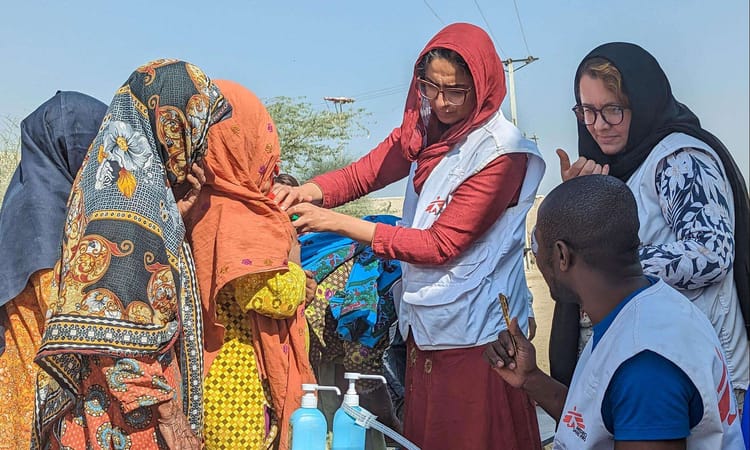
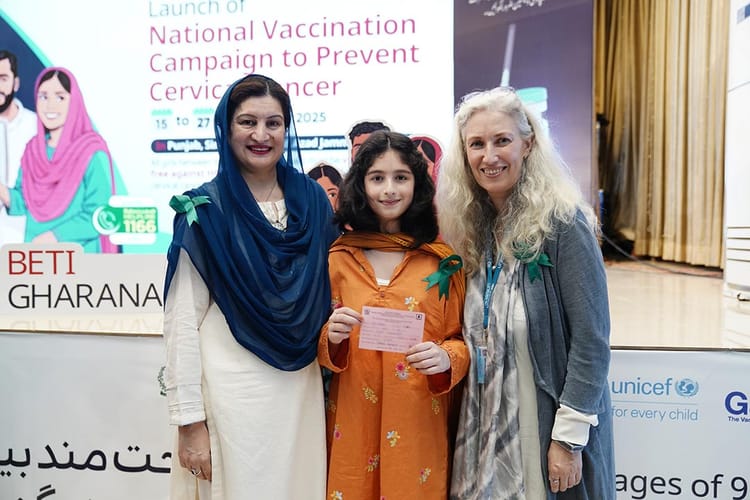
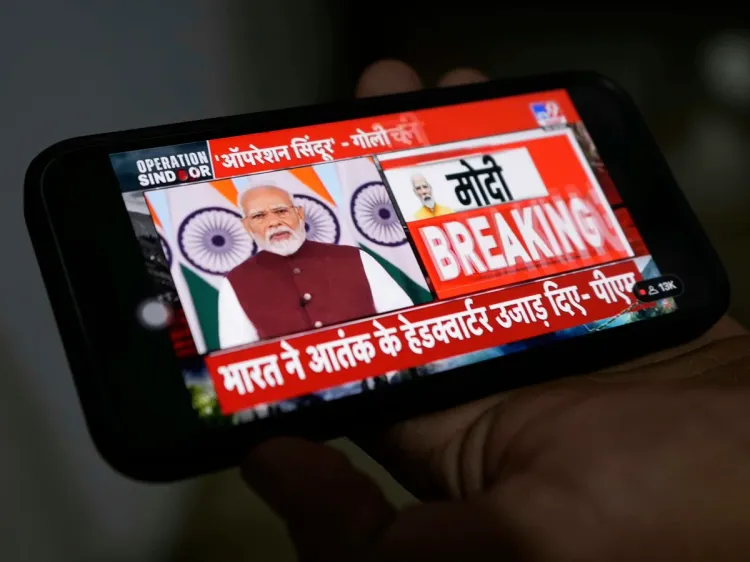
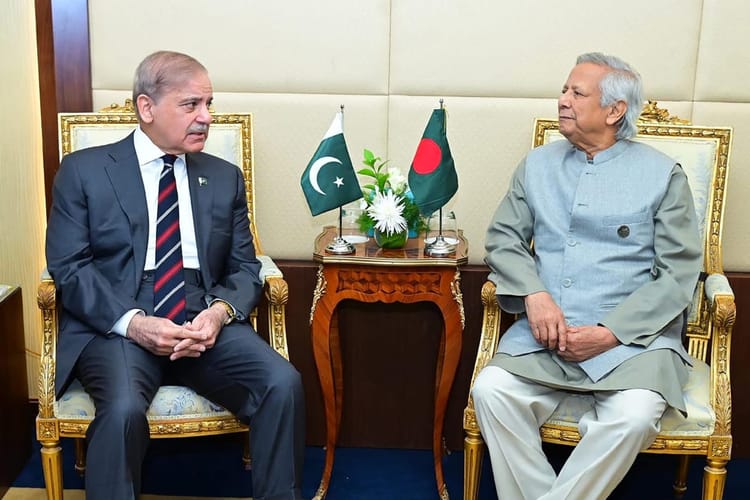
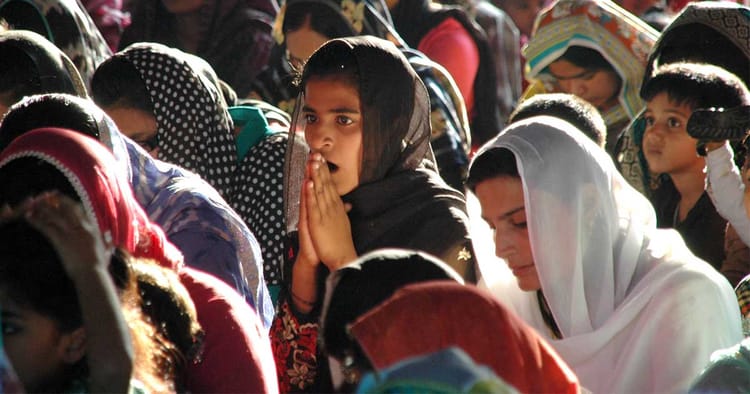
Member discussion